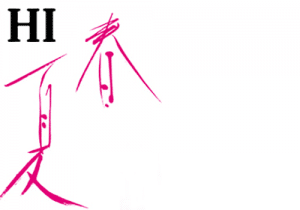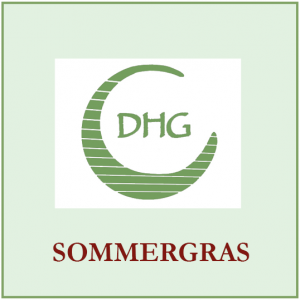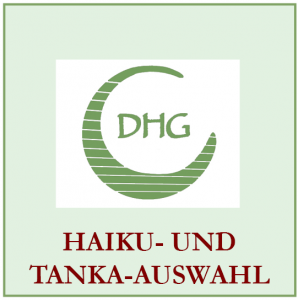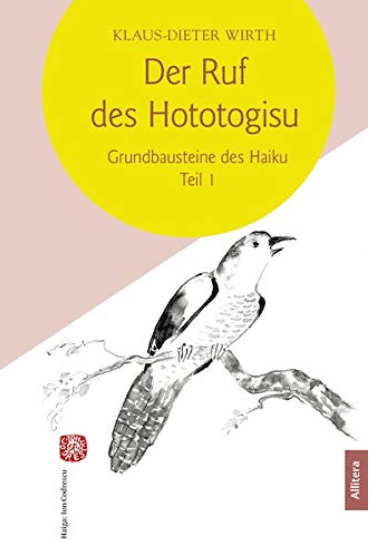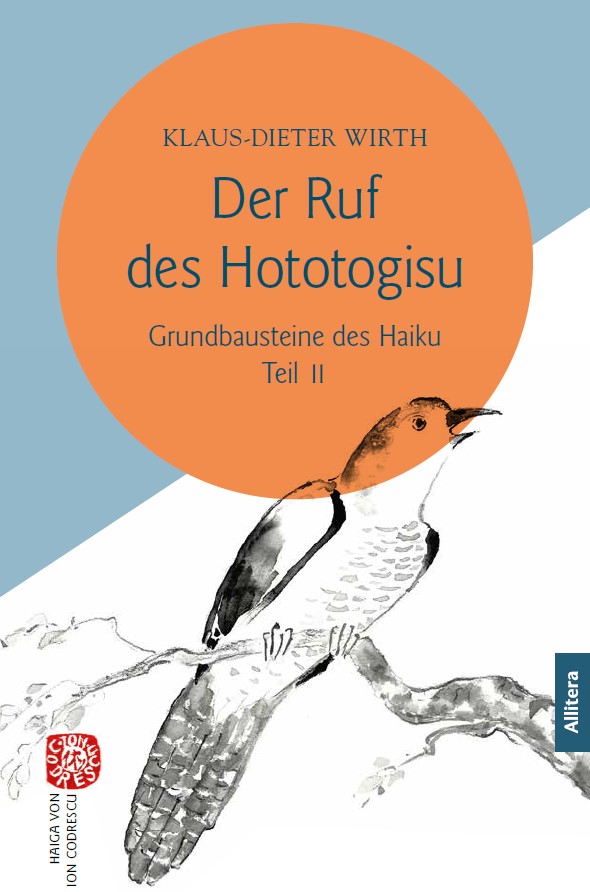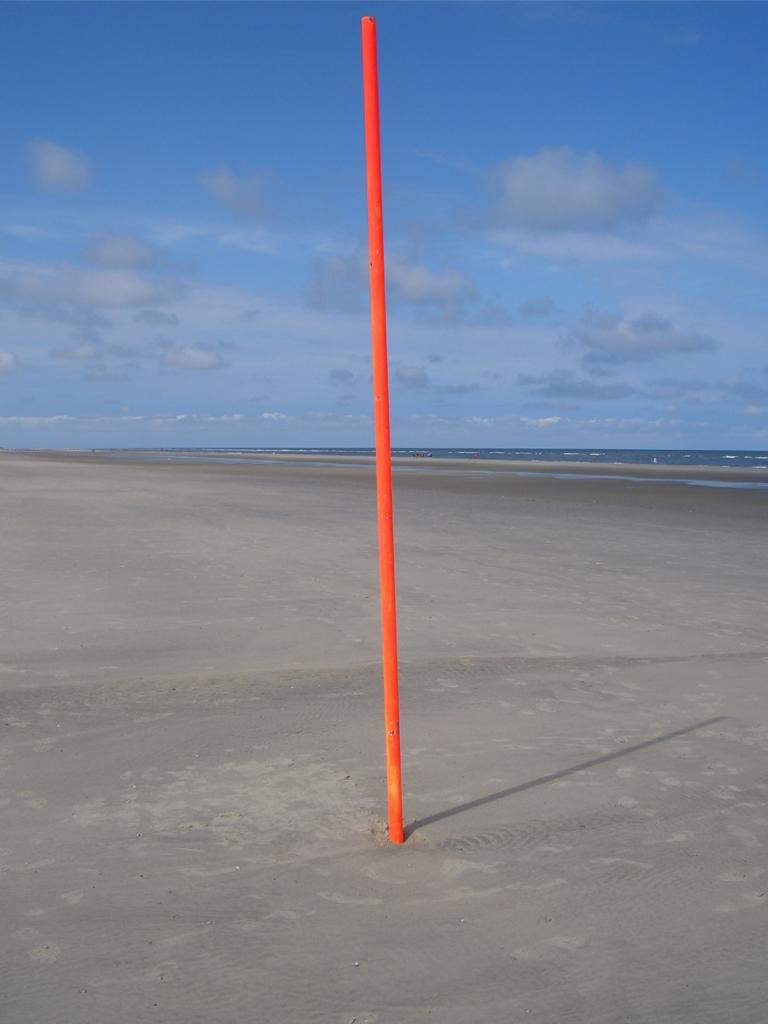Es wurden insgesamt 266 Haiku von 97 Autoren und 56 Tanka von 24 Autoren für diese Auswahl eingereicht. Einsendeschluss war der 15. Oktober 2020. Diese Texte wurden vor Beginn der Auswahl von mir anonymisiert.
Jedes Mitglied der DHG hat die Möglichkeit, eine Einsendung zu benennen, die bei Nichtberücksichtigung durch die Jury auf einer eigenen Mitgliederseite veröffentlicht werden soll.
Eingereicht werden können nur bisher unveröffentlichte Texte (gilt auch für Veröffentlichungen in Blogs, Foren, inklusive die Foren auf HALLO HAIKU, sozialen Medien und Werkstätten etc.).
Bitte keine Simultan-Einsendungen!
Bitte alle Haiku/Tanka gesammelt in einem Vorgang in das Online-Formular auf der DHG-Webseite HALLO HAIKU selbst eintragen:
Ansonsten per Mail mit Stichwort Haiku/Tanka-Auswahl 15. 1. 2021 im Betreff bitte an:
auswahlen@deutschehaikugesellschaft.de
Der nächste Einsendeschluss für die Haiku-/Tanka-Auswahl ist der 15. Januar 2021.
Jeder Teilnehmer kann bis zu sechs Texte – drei Haiku und drei Tanka – einreichen.
Mit der Einsendung gibt der Autor/die Autorin das Einverständnis für eine mögliche Veröffentlichung in der Agenda 2022 der DHG und auf http://www.zugetextet.com/sowie für eine mögliche Vorstellung auf der Website der Haiku International Association.
Haiku-Auswahl der HTA
Die Jury bestand aus Birgit Heid, Kerstin Hirsch und Jonathan Perry. Die Mitglieder der Auswahlgruppe reichten keine eigenen Texte ein.
Alle ausgewählten Texte – 47 Haiku von 42 Autoren – werden in alphabetischer Reihenfolge der Autorennamen veröffentlicht. Es werden maximal zwei Haiku pro Autor aufgenommen.
„Ein Haiku, das mich besonders anspricht“ – unter diesem Motto besteht für jedes Jurymitglied die Möglichkeit, bis zu drei Texte auszusuchen (noch anonymisiert), hier vorzustellen und zu kommentieren.
Da die Jury sich aus wechselnden Teilnehmern zusammensetzen soll, möchte ich an dieser Stelle ganz herzlich alle interessierten DHG-Mitglieder einladen, als Jurymitglied bei kommenden Auswahl-Runden mitzuwirken.
Eleonore Nickolay
Ein Haiku, das mich besonders anspricht
Hotelgeräusche.
In der Wiege des Atems
ein Schmetterling.Volker Friebel
In diesem Haiku passiert viel. Drei Bilder sind ja eigentlich zu viel. Hier ist jemand unterwegs, weiter weg von daheim. Die fremde Umgebung sorgt auch im Inneren für eine gewisse Unruhe, viele Eindrücke beschäftigen die Person, manche hat sie sicherlich auch von zu Hause mitgebracht. Zunächst sind für den Gast die Hotelgeräusche erwähnenswert, sie können nicht verdrängt werden und scheinen das Wohlbefinden zu beeinträchtigen. Ob es ein Urlaubs- oder ein arbeitsbedingter Hotelaufenthalt ist, kann ich nicht beurteilen. Manchmal muss man ja auch während des Urlaubs arbeiten.
Ich stelle mir vor, dass die Person aufgrund der Störung ins Freie geht oder eine Meditation beginnt, denn der Punkt nach den Hotelgeräuschen vermittelt mir eine Schnittstelle. Draußen und ebenso in den Gedanken kehrt allmählich Ruhe ein, die ersehnte Stille und Langsamkeit. Der Atem wird spürbar. So intensiv, dass er als Wiege empfunden wird. Ein Bild für ein leichtes Auf und Ab des Brustkorbs, ein sanftes Schaukeln des Beckens wie bei einer Wiege. Eine Meditationsübung, die vielleicht in der Nähe eines welligen Sees oder wogenden Meeres durchgeführt wird. Ein Atmen, das durch den ganzen Körper fließt. Und nun flattert ein Schmetterling daher. Scheinbar unbekümmert und nur seinen Bedürfnissen folgend. Obwohl er möglicherweise eine Unterbrechung der Versenkung darstellt, erlebt die Person bei seinem Anblick eine kontemplative Einheit von sich und eben diesem Schmetterling, dem sie ruhig atmend hinterhersieht.
Ausgesucht und kommentiert von Birgit Heid
vom Wind getrocknet
die Schatten der Bäume
auf den BetttüchernIngrid Meinerts
Dieses Haiku hat mich besonders angesprochen. Vom Wind getrocknet, das bedeutet für mich weiße, flatternde Wäsche, da verbindet sich in meinen Augen das Gleißen der Sonne mit dem Leuchten der Textilien. In der Nähe des Grundstücks stehen Bäume, die wohl deutliche Schatten werfen, weil der Sommer vorbei ist und die Sonne schon tiefer steht. Vielleicht ist man in Sorge, die Wäsche könnte bis zum Abend nicht mehr trocken werden. Doch siehe da, die Kraft der Sonne reichte aus. Bis dahin ein banaler Vorgang, könnte man meinen. Nicht der Rede wert, dass man Wäsche waschen, aufhängen, abhängen und wieder in die Schränke legen muss. Man macht es nebenbei, wie eben Zeit dafür ist. Reine Notwendigkeit, manchmal eine leidige Angelegenheit, führt sie doch zu keinem besonderen Wohlgefühl und ist nicht das Ergebnis der eigenen Kreativität. Und dennoch: Hier wird das Unbedeutende so wunderbar hervorgehoben und gewürdigt, sodass mich das Bild der Baumschatten auf der Wäsche tagelang noch berührt hat. Vielleicht ist die Wäsche an diesen Stellen sogar noch feucht. Es sind die kleinen Entdeckungen, die erst durch genaues Hinsehen und Achtsamkeit gegenüber unseren alltäglichen Selbstverständlichkeiten möglich werden. Es sind vergängliche Naturerscheinungen, die, im rechten Licht betrachtet, uns Reichtum und Fülle schenken können. Überdies lässt mich dieses Haiku an das Höhlengleichnis von Platon denken, wonach wir Menschen im Grunde genommen nur die Schatten der eigentlichen Urbilder oder Ideen sehen. Diesen philosophischen Betrachtungen nachzugehen, kann weitere Türen der persönlichen Bereicherung öffnen. Insofern hat das Haiku einen sehr weiten Bogen geschlagen.
Ausgesucht und kommentiert von Birgit Heid
im Hospiz
wieder ein Morgen Mittag
Abend vielleichtGregor Graf
Ein in freier Form verfasstes Haiku, das ohne das Stilmittel der zwei scheinbar entgegengesetzten Bilder auskommt.
Meine erste Wahrnehmung: Die konkrete Benennung und Aufzählung der Tageszeiten wirken wie das Ticken einer Uhr. Gewiss ist, dass diese Uhr in absehbarer Zeit stehenbleiben wird. Ungewiss ist das Wann. Bei wiederholtem Lesen löst sich diese Taktung allerdings wieder auf. Morgen, Mittag und Abend scheinen durch das Fehlen der Interpunktion ihre Grenzen zu verlieren und ineinanderzufließen. Sie verbinden sich zu einem gegenwärtigen Moment, einem Schwebezustand zwischen Erleichterung oder Schmerz, Trauer oder Enttäuschung und Bangen, Ungewissheit oder Hoffen. Es sind die Wörter „wieder“ und „vielleicht“, die das Haiku offenhalten. Es vervollständigt sich durch die Erfahrungen und die emotionale Welt des Lesers/der Leserin. In welchem emotionalen Zustand sich der Schreiber/die Schreiberin befindet, ist nicht zu ergründen. Beim Herausarbeiten der Deutungsmöglichkeiten, welche Emotionen sich hinter „wieder“ und „vielleicht“ verbergen können, stellte sich mir immer wieder die Frage: Darf man so denken und fühlen? Darf ICH so denken und fühlen? Eine Herausforderung, verursacht von 14 Silben.
Ausgesucht und kommentiert von Kerstin Hirsch
Mariä Lichtmess
die Krähe
verlässt ihren AstEva Limbach
Was mich an diesem Gedicht sofort begeistert hat, war der Klang, das Krächzen der Krähe, das in jeder Zeile wiederkehrt. Beim genaueren Hinhören fiel mir aber auf, wie hinter den offensichtlichen, sich in den Vordergrund drängenden Lauten, die lichteren durchzuschimmern begannen, ist da doch, in jeder Zeile wieder, dieses Aufwärtsstrebende, das sich dann – mühelos und als könnte es nicht anders sein – in Wohlgefallen oder wenigstens in eine Art von Erleichterung auflöst. Es stimmt zwar, dass beinah jedes Gedicht erst durchs laute Lesen zur vollen Entfaltung kommt. Bei diesem hier aber möchte ich mit unbedingtem Nachdruck empfehlen, es so langsam und deutlich wie möglich nachzusprechen, vielleicht sogar im salbungsvollen Ton vergangener Zeiten: Dieses Haiku ist für mich allem voran eine unglaublich dichte Melodie, ein ganzes Musikstück eigentlich, ein Lied vielleicht. Ich kann schwer genug davon bekommen, ich sage es mir immer wieder auf, mit jedem Mal wird das Klangbild, wie ich es gern nennen mag, intensiver … Aber genug davon. Schließlich kam mir die Idee, ich könnte ja einmal nachschauen, was so zu Mariä Lichtmess (übrigens ein volkstümlicher Begriff) geschrieben steht. Ich selber kenne mich nämlich leider sehr wenig aus mit dem Brauchtum. Leider, weil ich oft genug schon gefühlt habe, dass mir da etwas entgeht. Vielleicht zieht mich dieses Haiku auch deshalb so an? Mag sein. Was das Mariä Lichtmess im Gedicht betrifft, gäbe es jedenfalls genügend Deutungsmöglichkeiten, genügend Interpretationsspielraum, dass ich bis in die frühen Morgenstunden noch hier sitzen könnte und rätseln, und ich würde doch zu keinem Ende kommen. Das ist meine Sache nicht, wer will, kann sich ja die Mühe machen und recherchieren. Da würde man vielleicht etwas lesen von früher, von einem Knecht und seinem Herrn, dass die beiden mit einem Handschlag das Arbeitsverhältnis erneuerten zum Beispiel … Aber ich mag gar nicht so sehr darauf eingehen, dazu ist mir dieses Gedicht zu lieb, mir reicht, dass da etwas ist, etwas, das mich wieder und wieder hineinzieht in seinen Bann, und es kann freilich auch sein, dass es bloß die Musik ist, aber das wäre schon viel. Ein Haiku, das ich kaum vergessen werde.
Ausgesucht und kommentiert von Jonathan Perry
Die Auswahl
Winterabende –
um unsere Schultern
Großmutters StolaEllen Althaus-Rojas
Krankenhausfenster
eine Sternschnuppe
fälltChrista Beau
hatschi –
der Sitznachbar zieht
seine Maske strammWinfried Benkel
Wärmestrahler
ins Beisammensein schleicht sich
ein kühler GedankeWinfried Benkel
ein Gegenwind weht
Wellen in die Gesichter
der letzten SchwimmerEva Beylich
Bettlektüre
zwischen den Seiten
knirscht SyltChristof Blumentrath
Froschlaich
Kind an Kind an Kind
am UferMarcus Blunck
Bunkerberg –
mein Junge zeigt
auf die Blumen im BaumGerd Börner
nach dem Buddha-Museum
in jedem Gesicht
sein Lächeln …Claudia Brefeld
beim Müllraustragen
nachdenken
weshalb sie gingHorst-Oliver Buchholz
Lesebändchen
ich hangle mich
zum tröstenden WortStefanie Bucifal
tiefblauer Himmel
in meinen Gedanken
Munchs SchreiMaya Daneva
wo die Augen wären
die blinde Stelle
im SpiegelFrank Dietrich
Ginkgo im Herbstkleid
ein Straßenmusiker
stimmt seine GeigeHildegard Dohrendorf
Sommerregen
lachend läuft das Kind
durch die BlumenwieseHildegard Dohrendorf
Mineralienbörse
der Tausch von
GeschichtenBernadette Duncan
blümchenmaske die schönheit der gesten
Bernadette Duncan
hoch oben
lächeln die drachen
auf uns herabHans Egerer
Gartenzaun
in die Gesprächspause fällt
ein ApfelGisela Farenholtz
Die Speisekarte
per Code auf dem Handy
Kein BlattsalatGabriele Flacke
Hotelgeräusche.
In der Wiege des Atems
ein Schmetterling.Volker Friebel
Schneemond.
In meinem Zimmer die Wärme
aufblühender Kirschen.Volker Friebel
Hausordnung
Die Traumfragmente morgens
zusammenkehrenHans-Jürgen Göhrung
im Hospiz
wieder ein Morgen Mittag
Abend vielleichtGregor Graf
In der nacht wird es schneien
heimweh
und immer mehr heimwehClaus-Detlef Großmann
im Rollstuhl
der Wunsch nach
einem DuMatthias Gysel
Winterabend
unsere Lieder gleichen
sich anGabriele Hartmann
„zu!“, ruft der enkel –
das aufgeschlagene buch
eine steinskulpturBernhard Haupeltshofer
Nebelverhangen
der Kopf
voller GeisterMartina Heinisch
Er + Sie …
die Tonfiguren
neu aufstellenAngelika Holweger
Blütenblätter fallen
Fast vergessen
die PandemieDeborah Karl-Brandt
Septembersonne
Plötzlich zu zweit
auf dem BalkonDeborah Karl-Brandt
verklingende schritte
in der tür
sternenlichtMichaela Kiock
Der einzige Baum
in der Straße – voll Blüten.
Ein Hund hebt das Bein.Moritz Wulf Lange
Auf den Heuwagen
dürfen beim Erntefest nur
die Einheimischen.Moritz Wulf Lange
Dreikönigstag
in meinem Kalender
erste KorrekturenEva Limbach
Mariä Lichtmess
die Krähe
verlässt ihren AstEva Limbach
früher abschied …
wir haben einander
allzeit gesieztRamona Linke
vom Wind getrocknet
die Schatten der Bäume
auf den BetttüchernIngrid Meinerts
Still ist’s geworden – – –
ob sie noch einmal erwacht,
die PuppenbühneHeidelore Raab
Begegnung
Auf der Hängebrücke
Jeder für sichRenate Maria Riehemann
Pandemiebeschlüsse
in den Spätnachrichten
der Wirt stellt die Stühle hochWolfgang Rödig
Regen
die ganze Nacht
seine LebensbeichteBoris Semrow
die löcher
in ihrem tag
sommers endeHelga Stania
herbstallee
ein habicht hebt
das lichtHelga Stania
Der Findling im
Abendlicht wieder besetzt
vom FeuerkäferAngela Hilde Timm
Herbst
im alten Ballsaal
tanzen BlätterFriedrich Winzer
Tanka-Auswahl der HTA
Silvia Kempen und Peter Rudolf wählten 7 Tanka von 6 Autoren aus. Es werden maximal zwei Tanka pro Autor aufgenommen.
Unter dem Motto, „Ein Tanka, das mich besonders anspricht“ wird dieses Mal kein Text besprochen.
Die Auswahl
jenseits der letzten Häuser
liegt ein menschenleerer Wald
ich ahne, dass mein Pfad
sich irgendwann
darin verlieren wirdFrank Dietrich
das mädchen legt
kastanien
und ihr lächeln
in opas hände …
ein auto huptRuth Guggenmos-Walter
nichts
versprach ich mir
von meinem Besuch
doch nun serviert er Tee
aus KaffeeblütenGabriele Hartmann
… das mag ja sein
sagt der Kleine
zur großen Schwester
aber m e i n e n Nikolaus
gibt es wirklichGabriele Hartmann
Kein Urlaubsgruß
in diesem Jahr
du bist gegangen
die Stille
lässt auch mich schweigenRenate Küppers
nach dem Lockdown
die Bank unter den Linden
frisch gestrichen …
und wieder zündet er sich
die letzte Zigarette anEva Limbach
Ich tanze
zur ersten Seite der Platte
Altersleiden
entdecke ich täglich
auf VinylAnna Vriede
Sonderbeitrag von René Possél
René Possél hat aus allen anonymisierten Einsendungen ein Haiku ausgesucht, das ihn besonders anspricht.
Gartenzaun
in die Gesprächspause fällt
ein Apfel
Ganz gemächlich und bedächtig kommt dieses Haiku daher. Wenn man bei den einzelnen Stichworten etwas verweilt, nimmt man einen Charakter von Entschleunigung wahr …
Das Stichwort „Gartenzaun“ in der ersten Zeile weckt ein Bild. Es ist die Grenze zweier benachbarter Gärten und die Situation von Nachbarn, die beide offenbar gärtnern. Noch mehr nutzen sie in dem Falle die Gelegenheit, gemütlich zu plaudern. (zweite Zeile)
Das Gespräch muss eines sein, in dem nichts Besonders gesagt wird und in dem auch längere Pausen nicht stören – im Gegenteil.
Zum Ende der zweiten Zeile hin wird etwas Spannung aufgebaut. Was mag es sein, das in die Pause des ruhigen Gespräches fällt? Die Auflösung „ein Apfel“ macht deutlich, dass dieses Gespräch und seine Pausen offen sind für das, was da im Garten geschieht.
Ein Gespräch, in dem ein fallender Apfel tönt und bemerkt wird, macht deutlich, dass man nicht in Eile und nicht laut ist, sondern: Man hat alle Zeit der Welt – für den Garten, den Nachbarn, ein paar Worte, ein paar Pausen und – das „Ereignis“ eines fallenden Apfels …
Wie gut das Haiku ein menschlich-natürliches Lebenstempo evoziert!


